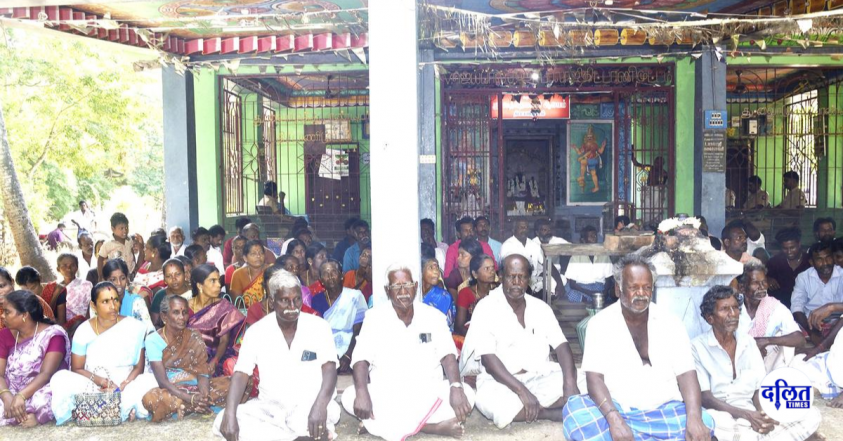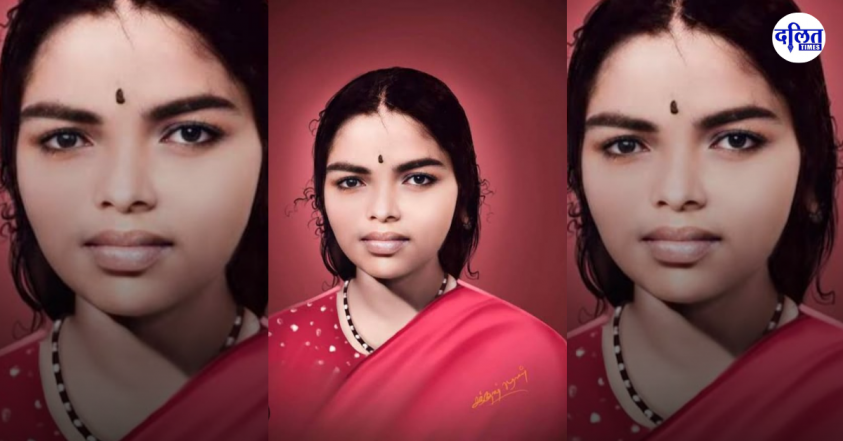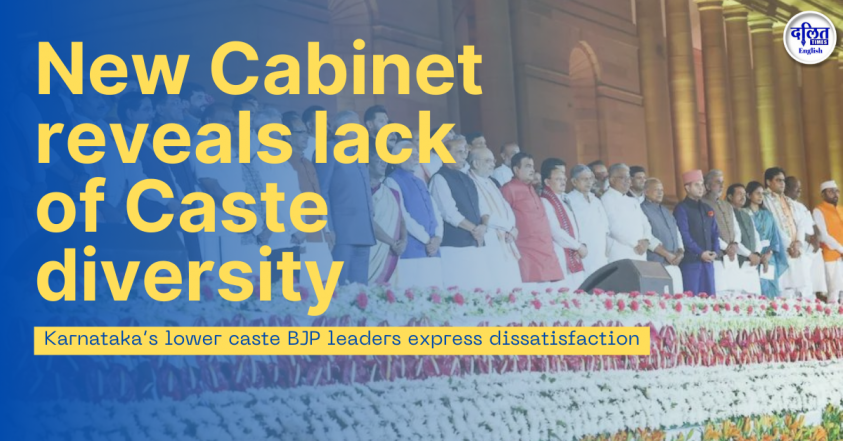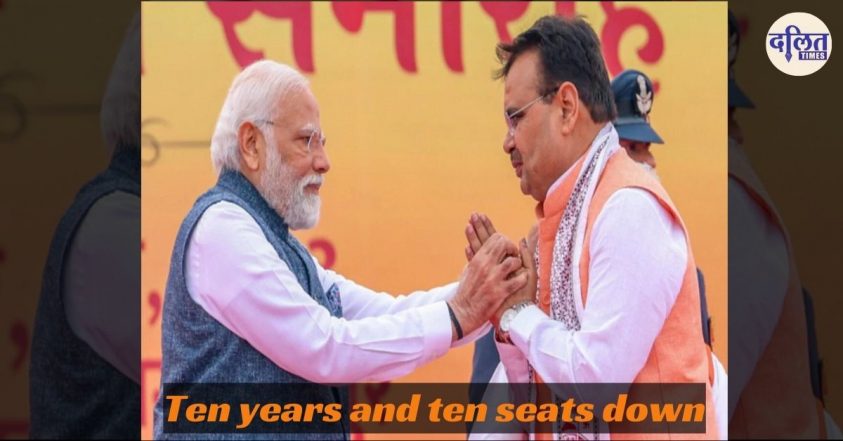On June 9, 2025, yet another incident of caste-based exclusion surfaced in Tamil Nadu, Tiruvarur district where Scheduled Caste (SC) residents of a local village were barred from participating in a temple festival. The incident has ignited protests by Dalit villagers, who are demanding equal rights and an end to caste discrimination in religious practices. Their peaceful assertion of constitutional rights was met with hostility, not from dominant castes alone, but primarily from OBC caste groups who currently control the temple administration.
The temple festival, an annual event deeply woven into the village’s social and spiritual fabric, became a site of humiliation and exclusion for the SC community. Despite being residents of the village for generations and regular contributors to temple activities, Dalit devotees were denied entry into the sanctum and barred from carrying the temple idol during the procession. This exclusion is not a mere act of social bias it is a clear violation of Article 17 of the Indian Constitution, which abolishes untouchability in all its forms.
The management of the temple, allegedly dominated by OBC caste groups, has resisted calls for inclusive practices. When SC residents demanded their right to equal participation, they were not only denied but were allegedly subjected to threats and verbal abuse. The OBC-controlled committee claimed they were merely “preserving tradition,” exposing the casteist logic that cloaks discrimination in cultural justification.
Also Read: Birsa Munda: The Tribal Icon Who Dared to Dream of Liberation
Protests broke out the same day, led by Dalit youth and women who gathered near the temple premises, holding placards and chanting slogans asserting their rights. They demanded not only immediate inclusion in the ongoing festival but structural changes in temple management, including proportional representation of Scheduled Castes in all religious and administrative functions. Their protest, dignified and grounded in constitutional morality, was policed but not protected. Local authorities, as is often the case, remained non-committal, with no FIR registered till date against the perpetrators of this social boycott.
This is not an isolated incident in Tamil Nadu—a state often celebrated for its social justice legacy. Despite landmark reforms initiated during the Dravidian movement, caste discrimination persists in temples, crematoriums, marriage halls, and village common spaces. In several districts including Cuddalore, Madurai, and Sivagangai, Dalits have faced violent retaliation for asserting their right to temple entry or demanding festival inclusion.
The Tiruvarur case underscores a crucial yet uncomfortable truth: caste discrimination is not limited to dominant Savarna groups. Even within so-called backward classes, anti-Dalit prejudice thrives, particularly when access to power and religious authority is at stake. The selective solidarity shown by certain OBC groups collapses when Bahujan unity demands dismantling caste hierarchy, not just Brahminical dominance.
The state government must act swiftly. The HR&CE Department, which oversees temple affairs in Tamil Nadu, is constitutionally obligated to ensure equality and non-discrimination. Yet its silence on such cases amounts to complicity. Legal action under the Scheduled Castes and Scheduled Tribes (Prevention of Atrocities) Act, 1989, must be initiated against those responsible for orchestrating and enforcing this boycott.
Dalits are not asking for charity but they are demanding dignity. The right to worship, to participate in public religious life, and to walk with heads held high is not a privilege, but a constitutional guarantee. As long as caste barriers in sacred spaces are normalized, the dream of social equality will remain a distant promise.
The resistance from Tiruvarur must echo across India. It is a call not just for temple entry, but for annihilation of caste—everywhere, in every form.
Legal Protections in India Against Discrimination of Scheduled Castes
India’s legal and constitutional framework provides strong safeguards for Scheduled Castes and Scheduled Tribes against caste-based discrimination, exclusion, and violence. These protections were born from the lived experiences of systemic oppression and the vision of social justice articulated by Dr. B.R. Ambedkar, the chief architect of the Constitution. However, the persistence of incidents like the recent ostracism of Dalits in Tiruvarur village underscores the gap between law and lived reality.
At the heart of these protections lies Article 17 of the Constitution, which abolishes “untouchability” in all its forms and declares its practice a punishable offence. This fundamental right forms the bedrock of anti-caste discrimination laws in India. Article 15 further prohibits discrimination on the grounds of caste, while Article 14 guarantees equality before the law. The Constitution also empowers the State under Article 15(4) and Article 16(4) to make special provisions for the advancement of SCs in education and public employment.
To operationalize these constitutional values, Parliament enacted the Scheduled Castes and Scheduled Tribes (Prevention of Atrocities) Act, 1989, a landmark legislation criminalizing a wide range of caste-based atrocities. The Act, amended in 2015 and 2018, includes offences such as social boycotts, verbal abuse, sexual violence, and denial of access to public spaces. Importantly, the 2018 amendment restored the provision for immediate arrest of accused persons without prior approval an essential step given widespread underreporting and official apathy.
Also Read: Unheard, Unattended, Unjust: The Death of a minor Girl in Bihar Exposes a Rotting System
In addition to criminal penalties, the Protection of Civil Rights Act, 1955 specifically targets the practice of untouchability in religious and social spaces. It penalizes any attempt to prevent SCs from accessing temples, drawing water from public wells, or participating in festivals—offences directly relevant to the Tiruvarur case. Yet, these laws often remain paper tigers in the absence of proactive enforcement.
Institutional mechanisms such as the National Commission for Scheduled Castes (NCSC), a constitutional body under Article 338, are mandated to monitor the implementation of safeguards, investigate complaints, and ensure accountability. Special courts under the PoA Act, along with state-level SC/ST Protection Cells, exist on paper but are often under-resourced or inactive. While Tamil Nadu has historically been seen as a pioneer in social justice, its failure to prevent recurring temple-entry exclusions reveals serious administrative and political lapses.
Ultimately, legal protections are only as strong as their implementation. In cases like the Tiruvarur temple exclusion, prompt application of the PoA Act, arrest of the accused, and intervention by the HR&CE Department are not discretionary however they are mandatory. The rule of law must override the caste panchayat’s writ. It is not enough to have rights on paper; justice must be made real in the temple streets where Dalits are still asked to stand outside.



